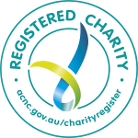Preventing Sexual Exploitation, Abuse and Harassment
Safeguarding Vulnerable Adults
Policy
- Purpose The purpose of this policy is to ensure that all people who participate in and benefit from HSA’s programs and activities are protected, and to assist in identifying and dealing fully with any suspicion or allegation of sexual exploitation or abuse or harassment.
- Scope This policy is intended to apply to any work implemented or funded by HSA, all HSA People, and HSA’s partners.
- Policy
1 Survivor support and assistance
1.1 HSA will adopt a survivor-centred approach in preventing and responding to SEA. HSA will ensure that all responses are developed in a manner that balances respect for due process with a survivor-centred approach in which the survivor’s wishes, safety, wellbeing, dignity and respect remain a priority in all matters and procedures. Furthermore, all actions taken should be guided by respect for choices, wishes, rights and dignity of the survivor.
1.2 HSA will ensure survivors of SEA are offered comprehensive information, support and assistance such as referral to safe health/medical, psychosocial and legal/justice response where appropriate and where required, to specialised children’s or women’s services.
1.3 Children have the right to participate in decisions that will affect them. If a decision is taken on behalf of a child, the best interests of the child shall be the overriding guide. Referrals should be done in consultation with child focused agencies specialising in the special needs of child survivors of sexual abuse, and who are familiar with local procedures relating to the protection of children.
1.4 HSA aims to involve survivors in decision making and will ensure that survivors will be provided with information on the progression of an investigation and final outcomes.
1.5 HSA will not tolerate discrimination based on gender, age, race/ethnicity, ability, sexual orientation, or other characteristics in the PSEA process.
2 Partner Organisations
2.1 This policy will be included in all contracts and memorandums of understanding with Partner Organisations and these requirements must also be applied to all downstream partners.
2.2 Each financial year, HSA-Australia will organise an induction/workshop, which may be held either face-to-face or by other virtual means, at which this policy, its importance and consequences of non-compliance, will be presented to the Partner Organisation’s executive and relevant staff, volunteers and contractors.
2.3 All Aid and Development Activities funded by or through HSA and Partner Organisations and relevant staff, volunteers and contractors will be monitored to ensure they are not in breach of this policy. Monitoring will be proportionate to the amount of funding the risk of breach (as a result of the funded activities, organisation or skills and experience of board and staff) and will be recorded in the activity/project file. Monitoring may include at least one country visit annually at which this policy will be made the subject of special presentation.
2.4 Applying this policy may be difficult in some situations and sound judgement will be necessary. The policy cannot provide a specific response for every circumstance. HSA will apply the spirit and intent of this clause in the conduct of Aid and Development Activities. If this policy does not provide a clear answer on how to comply in a particular circumstance, HSA-Australia will document clearly the decisions made and the reasons behind them and make them available to both recipients and donors.
2.5 Feedback is important to HSA and our Partner Organisations as it encourages improvement. Therefore, all feedback is welcomed. Feedback will be directed to the relevant Department of HSA-Australia for action. A complainant regarding an alleged breach of ACFID Code of Conduct can be made directly to ACFID (https://acfid.asn.au/content/complaints).
3.1. HSA’s Approach to Safeguarding Vulnerable Adults
A person is deemed vulnerable due to structural, cultural, systemic power dynamics and perceptions about a person which means they are more susceptible to being taken advantage of. Perceptions and power dynamics may exist around people for many reasons, including because of their gender, disability, or ethnicity. Core to HSA’s work with communities in both Australia and internationally is a focus on empowerment and participation, understanding rights, sharing power, and building equality. This work inherently improves safety for people as it changes their position to a less vulnerable one.
In addition, HSA seeks to ensure that our organisational systems and processes also support safeguarding for everyone who comes into contact with HSA. While compliance with applicable law is required, the philosophical basis of HSA’s policy to safeguard vulnerable adults is informed by three additional sources: a reading of Christian scriptures, HSA values, and an understanding of international development practice:
- The Bible teaches us that all people are made in the image of God and as such have equal value and dignity. Yet in our unequal world, Christian teaching calls out God’s preferential relationship for society’s most vulnerable, and names our love of God as mirroring our inclusion and care of them (Matthew 25:31-36). Articulated both in the Old Testament covenantal law as well as in the teaching and practice of Jesus and the early church, the Bible demonstrates God’s love for the vulnerable and calls on the church to reflect that through its commitment and practice to the whole person, which encompasses not just physical, social, spiritual and emotional needs, but also their particular context and situation.
- As an international development organisation, we understand that good development for a community must work for, and protect, the most vulnerable groups in a community. HSA also affirms the global commitments and laws that provide the legal framework for protection. These include the Convention on the Rights of Persons with Disabilities (UN CRPD) and its related UN conventions; the Convention on the Elimination of All Forms of Discrimination against Women (CEDAW), adopted in 1979, the UN Statement for the Elimination of Sexual Abuse and Exploitation; the national vulnerable adults legislation of Australia and international good humanitarian practice, including the Core Humanitarian Standards and the ACFID Code of Conduct.
While overall responsibility for this policy and its implementation lies with the HSA leadership group and Board, we recognise that all HSA People have a shared responsibility to exert ourselves to prevent exploitation and/or abuse of vulnerable adults and to report any abuse, suspected or discovered.
HSA Standards for Safeguarding Vulnerable Adults
3.2.1. Safe Ideas HSA’s Safeguarding Vulnerable Adults Policy outlines the essential ideas, principles and standards that HSA People and HSA’s partner organisations will be expected to work within. Safeguarding Guidelines describe the implementation of this policy.
3.2.2. Safe Behaviour HSA’s Code of Conduct details expected and appropriate behaviour for HSA People who are in contact with vulnerable adults. All HSA People will be expected to sign and abide by the Code of Conduct, which includes adherence to this policy.
3.2.3. Safe People HSA will give attention to carefully selecting and training people who are likely to work with people in vulnerable positions as part of our recruitment and induction processes. All HSA employees and specified categories of volunteers, prior to commencing work, will be subject to safeguarding questions, referee and an appropriate criminal record check in the relevant jurisdiction/s, or statutory declarations or local legal equivalents where criminal record checks are unavailable or unreliable. People who pose an unacceptable risk to vulnerable adults will not be offered paid or voluntary positions at HSA. Our induction process will include training in our Code of Conduct and key policies including child protection, protection of vulnerable people (including prevention of sexual exploitation and abuse), complaints and whistle blowing.
3.2.4. Safe Plans All programs that are run by HSA People, or funded by HSA, will include an assessment of activity related risks to vulnerable adults in their planning, considering issues of power imbalances, gender equality, complaints and reporting, and prevention of sexual exploitation and abuse. As part of assessing and managing risks to vulnerable adults within our work, HSA will ascertain the resources available in various locations and jurisdictions for notification and assistance in the event that abuse is reported or suspected.
3.2.5. Safeguarding Skills All HSA People will be made aware of HSA’s Safeguarding Vulnerable Adults Policy and Guidelines, including how to report a concern about abuse in HSA run or funded programs. HSA will communicate its Safeguarding Vulnerable Adults Policy to relevant stakeholders in a form that is accessible for them and appropriate to their context and level of contact with HSA. In addition, regular training will be made available to employees, tailored to the frequency and intensity of their contact with adults in vulnerable positions in their work with HSA.
3.2.6. When things go wrong HSA People are required to make a report to the HSA Executive Officer or Office Manager, according to the process in the HSA Complaints Policy, when they know of or have reasonable suspicion of abuse of an adult or adults. The Guidelines detail the procedure for confidential reporting of concerns about vulnerable adult safety, or allegations of abuse or non-compliance with this policy or HSA’s Code of Conduct. The reporting process will be accessible for HSA People and for adults who may experience abuse in the course of a HSA program. The process for reporting concerns or allegations will be communicated to all HSA People.
Escalation and reporting
All concerns and allegations will be appropriately escalated and followed up according to the HSA Complaints Policy and requirements of relevant local laws, including reporting to relevant authorities where applicable. The HSA Executive Officer or Office Manager will determine the best response to concerns or allegations. Depending on the seriousness of the issue, this may include an internal investigation, a report to the HSA Board, or an external authority. The investigation may also recommend internal disciplinary measures, including dismissal. All information from reports and investigations will be carefully documented and stored. All incidents will be handled in a way which upholds the principles of: protection of all parties involved, confidentiality, expedient reporting, truthfulness, fairness and professionalism.
3.2.7 Safe for all people HSA believes that all people have equal and significant value, and should be safe within HSA programs or HSA funded programs, wherever they come from. HSA is committed to upholding the dignity, nurturing and protection of all people with whom we come into contact particularly those in a vulnerable situation. HSA People and HSA’s partners work across a range of jurisdictions, and are subject to state, national and international laws. Within these contexts, HSA aims to provide a safe and trusted environment that safeguards everyone from sexual exploitation and all forms of abuse. HSA’s partners will develop their own policies and processes, adapted to their own local contexts that have as their minimum basis the standards included in this policy
-
Definitions/Terminology Clarification
Abuse – includes physical abuse, sexual abuse, sexual exploitation, emotional abuse and neglect.
Beneficiary – a person who receives assistance as part of humanitarian relief or development programs.
Commercial exploitation - exploiting a vulnerable adult in work or other activities for the benefit of others and to the detriment of the person’s physical, mental, socio economic health or education. It includes, but is not limited to, forced labour.
Contact with vulnerable adults - Any interaction with or proximity to adults who are deemed vulnerable according to this policy. This includes both intentional and incidental contact, oral, written or electronic communication as well as face-to-face and physical contact.
Emotional abuse - persistent emotional maltreatment that impacts on mental wellbeing and mental health. Emotionally abusive acts include restriction of movement, bullying (including cyber bullying), degrading, humiliating, threatening, scaring, discriminating, ridiculing behaviour or other non-physical forms of hostile or rejecting treatment.
Neglect and negligent treatment - allowing for context, resources and circumstances, neglect and negligent treatment refers to a persistent failure to meet a person’s basic physical and/or psychological needs, which is likely to result in serious impairment of a person’s healthy physical, spiritual, moral and mental development. It includes the failure to properly supervise and protect people from harm and provide for nutrition, shelter and safe living/working conditions.
Physical abuse - actual or potential physical harm perpetrated by another person. It may involve hitting, shaking, poisoning, drowning and burning.
Sexual abuse – actual or threatened forcing or enticing of person to take part in sexual activities whether by force or under unequal or coercive conditions (i.e. he or she does not fully understand and/or has little choice in consenting to). All sexual activity with someone under the age of consent (in the law of the host country or under relevant Australian legislation) is considered to be sexual abuse. .
Sexual exploitation – any actual or attempted abuse of position of vulnerability, differential power, or trust, for sexual purposes, including but not limited to, profiting monetarily, socially, or politically from the sexual exploitation of another. The abusive relationship between victim and perpetrator involves an imbalance of power where the victim’s options are limited. It may be misunderstood by adults as consensual. In line with HSA’s values, transactional sex in relation to adults in a vulnerable context is also considered exploitative and is prohibited.
Sexual harassment - A person sexually harasses another person if the person makes an unwelcome sexual advance or an unwelcome request for sexual favours, or engages in other unwelcome conduct of a sexual nature, in circumstances in which a reasonable person, having regard to all the circumstances, would have anticipated the possibility that the person harassed would be offended, humiliated or intimidated. Sexual harassment can take various forms. It can be obvious or indirect, physical or verbal, repeated or one-off and perpetrated by any person of any gender towards any person of any gender. Sexual harassment can be perpetrated against beneficiaries, community members, citizens, as well as staff and personnel.
Safeguarding - Safeguarding is the responsibility that organisations have to make sure that their staff, volunteers, operations, and programs do no harm, that they do not (even inadvertently) through programming or delivery of assistance, expose people to an additional risk of harm and abuse, and that any concerns the organisation has about vulnerable adults and children’s safety within the communities in which they work, are reported to the appropriate authorities or handled appropriately. ‘
HSA Partners - refers to any organisations who are supported by HSA to implement community development programs.
HSA People - refers to all HSA staff, volunteers, consultants, exposure visit participants, Fieldworkers and some specific contractors.
Vulnerable Adult A person is deemed vulnerable due to structural, cultural, systemic power dynamics and perceptions about a person which means they are more susceptible to being taken advantage of. Perceptions and power dynamics may exist around people for many reasons, including because of their gender, disability, or ethnicity. For the purposes of this document, a person is deemed vulnerable if they are aged 18 or over and are subject to any of the following contexts;
- a) They are placed in a vulnerable position by reason of a disaster or conflict and may be unable to take care of or to protect themselves against significant harm, exploitation or abuse.
- b) There is a significant power difference between the HSA People and the people we work with. For this reason all adult beneficiaries of HSA programs or HSA Partners are deemed vulnerable for the purposes of the scope of the policy and the protection it affords;
- c) They have particular care, support or special needs and as a result abuse occurs when that person is mistreated, neglected or harmed by another person who holds a position of trust e.g. they may be in custody or secure accommodation, or they are an expectant or nursing mother;
- d) They are dependent or reliant on others for the provision of basic services (not limited to e.g. safety, shelter, water, food), because of their context, such as:
- A recipient of an NGO relief distribution, who may be at increased risk of exploitation or abuse as a result of their status or their lack of power and control;
- An internally displaced person or refugee and/or the adult is in an unfamiliar country and location
- A person in a relationship (work or social) or in contact with another adult who seeks to misuse their position of authority or trust to control, coerce, manipulate or dominate them.
-
Related References
-
- ACFID Code of Conduct Bullying and Harassment Policy
- DFAT Preventing Sexual Exploitation, Abuse and Harassment Policy Discipline Policy Recruitment Policy and Guidelines
- HSA Code of Conduct
- Safeguarding Children Policy and Guidelines
- Safeguarding Vulnerable Adults Guidelines
- Social Media Policy and Guidelines
- TEAR Safeguarding Vulnerable Adults
- Visual Images Policy and
- Guidelines Volunteer Policy and Guidelines
- The HSA board has appointed a focal person for prevention of sexual exploitation, abuse and harassment.




